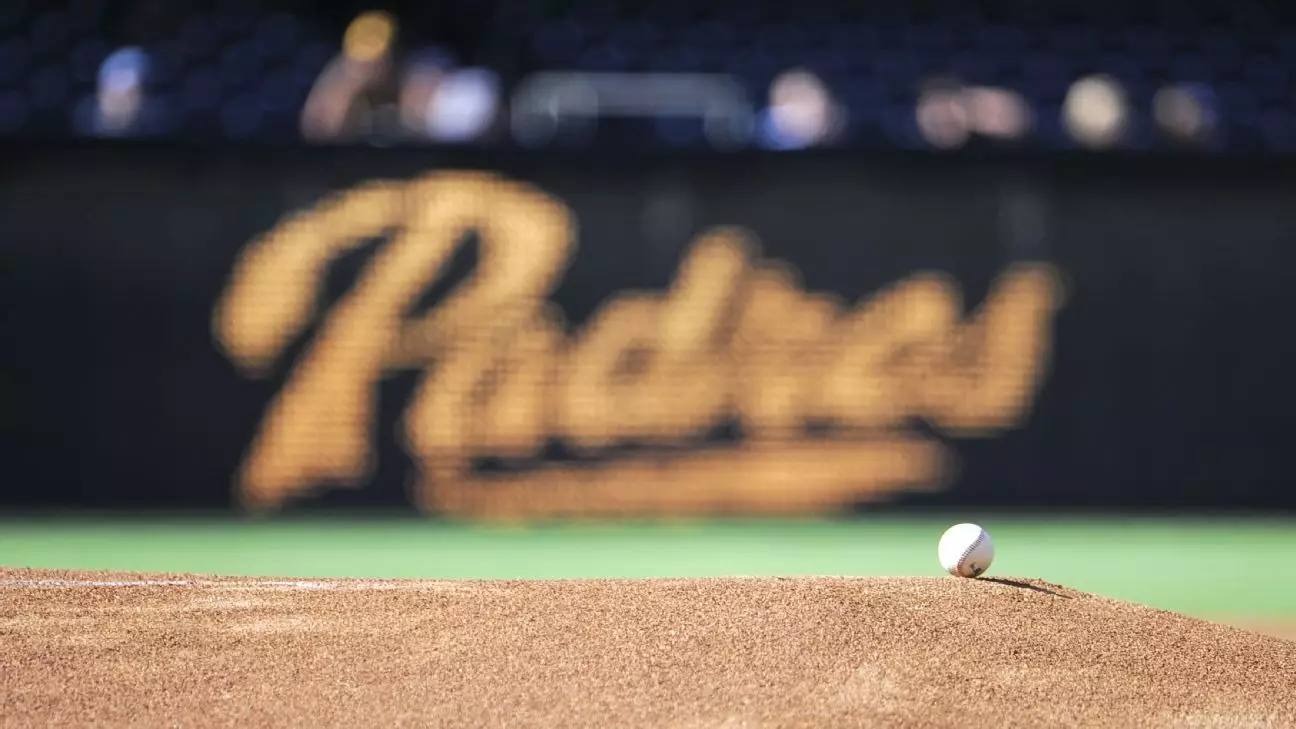On a pivotal day in Palm Beach, Florida, the owners of Major League Baseball (MLB) reached a significant consensus: John Seidler is set to assume the role of the San Diego Padres’ control person. This decision, confirmed by MLB Commissioner Rob Manfred, not only marks a new chapter for the franchise but also emphasizes the complexities surrounding ownership transitions in professional sports, particularly when dealing with the legacy of a beloved figure like Peter Seidler, who passed away in November 2023. While John Seidler’s appointment appears to be a step to ensure continuity, the underlying tensions connected to ownership may pose challenges that could affect the team’s dynamics moving forward.
John Seidler’s transition into his new role comes at a time when the Padres are looking to further establish their identity in the competitive landscape of MLB. Although his formal takeover is imminent pending the completion of legal formalities surrounding his late brother’s trust, the team’s direction is inextricably linked to ongoing family disputes. The reported lawsuit filed by Peter Seidler’s widow, Sheel Seidler, highlights a contentious environment, undertaken amid claims of “fiduciary breaches of trust, fraud, and self-dealing” against other family members. Such internal discord, combined with a lack of organizational clarity, may hinder the Padres’ ability to make coherent decisions regarding player acquisitions and roster development.
The lawsuit filed by Sheel Seidler raises critical questions about the governance of the Padres and the legacy of Peter Seidler. As she asserts that decisions made about the team are contrary to her husband’s wishes, the Padres’ management must navigate the complexities of trust law intersecting with professional sports governance. The ripple effects of this legal dispute could have lasting repercussions on team operations, potentially stalling crucial strategic decisions. With her lawsuit already casting a shadow over John’s appointment, the franchise must work diligently to ensure unity and focus amid these challenges—a task that could prove easier said than done.
As the Padres grapple with ownership and legal issues, the team’s performance remains a pivotal concern for its players and fans alike. The recent season ended with a disheartening defeat against the Los Angeles Dodgers, leaving them just shy of a National League Championship Series berth. Despite the heartache, the Padres faced another significant hurdle this offseason: roster stability. The decision not to significantly bolster their lineup through free agency or trades—apart from the acquisition of catcher Elias Diaz—may signify a team in limbo, uncertain of its direction. Notably, key contributors like Jurickson Profar, Tanner Scott, and Ha-Seong Kim have departed, raising concerns about the club’s competitiveness.
Padres star third baseman Manny Machado voiced what many within the organization likely feel: disappointment. As players look at their roster and witness departures without notable additions, a sense of urgency to recalibrate is palpable. Machado’s expression of concern isn’t just a sentiment; it reflects a growing frustration that could affect team morale. In professional sports, cohesive momentum is vital for success, and any lingering doubts or dissatisfaction regarding management decisions could translate into on-field performances that are less than stellar.
As the Padres embark on this uncertain journey, the imperative for stability must be prioritized. With John Seidler’s control now formalized, he must quickly establish a vision for the franchise that reunites its leadership and refocuses the organization on its competitive objectives. The coming months will be crucial as internal disputes and external pressures collide. The combination of legal battles, roster uncertainties, and the quest to honor Peter Seidler’s legacy will demand resolve and strategic foresight. As the Padres look toward the future, one thing is clear: they cannot afford to let turmoil undermine their potential in the coming seasons.
The Padres stand at a crossroads, where decisions made in boardrooms will significantly shape the teams that take the field. Ensuring cohesion amidst their complex ownership dynamics will ultimately determine whether they thrive or merely survive in the highly competitive landscape of Major League Baseball.

